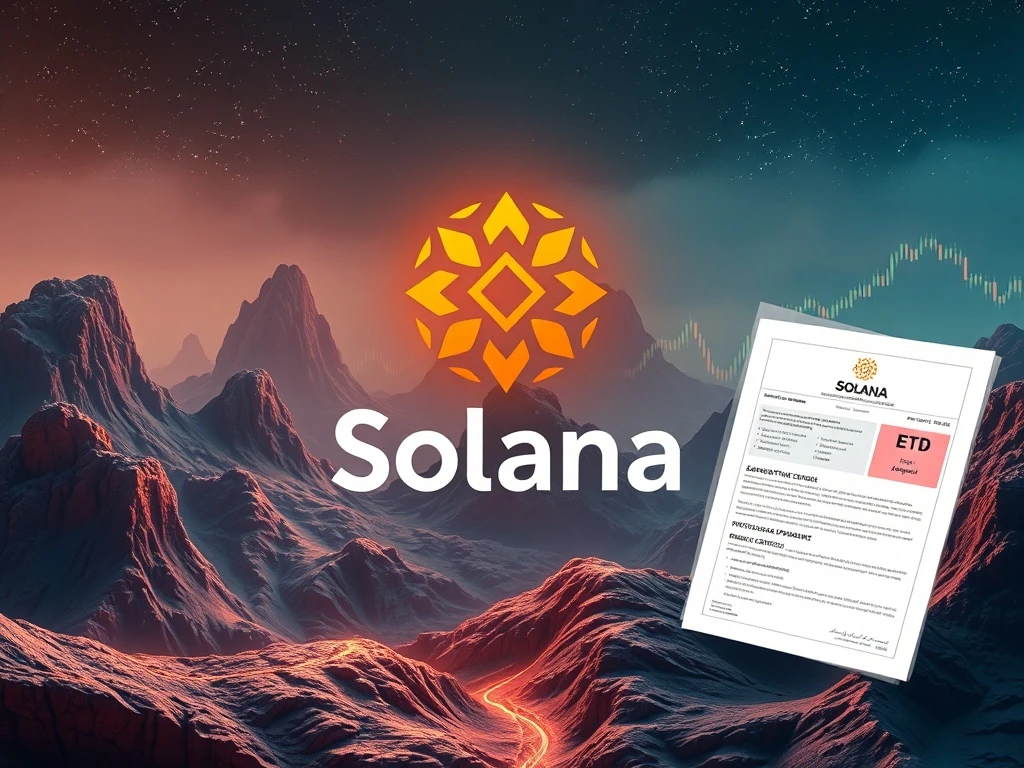Solana ETF Breakthrough: Grayscale and VanEck Push for SEC Approval with Revised Filings

The cryptocurrency world is buzzing with excitement as Grayscale and VanEck take a monumental step toward bringing Solana ETFs to mainstream investors. These revised filings represent a potential game-changer for institutional crypto adoption. Let’s break down what this means for the market and your investment strategy.
What’s New in the Solana ETF Filings?
Both financial giants have submitted amended documents that clarify crucial operational details:
- Grayscale’s GSOL ETF proposes a 2.5% fee structure with Coinbase Custody
- VanEck’s VSOL offers a lower 1.5% fee with dual custody (Gemini and Coinbase)
- VanEck includes an innovative active staking component
- Both avoid derivatives and leverage for regulatory compliance
How Do Grayscale and VanEck’s Solana ETF Models Compare?
| Feature | Grayscale GSOL | VanEck VSOL |
|---|---|---|
| Fee Structure | 2.5% | 1.5% |
| Custody | Coinbase | Gemini + Coinbase |
| Staking | Passive | Active (reinvests rewards) |
| Exchange | NYSE Arca | Cboe BZX |
Why SEC Approval Matters for Solana ETFs
The regulatory green light could trigger significant market developments:
- Enhanced liquidity for SOL tokens
- Greater price stability through institutional participation
- Mainstream validation of Solana’s blockchain technology
- New investment avenues for traditional finance players
What This Means for Crypto Investors
These Solana ETF developments signal growing institutional confidence in cryptocurrency markets. While approval isn’t guaranteed, the amended filings show serious preparation for regulatory compliance. Investors should monitor:
- SEC commentary on crypto staking in ETFs
- Market reaction to potential approval timelines
- Competitive responses from other asset managers
Frequently Asked Questions
When might the SEC approve these Solana ETFs?
While no official timeline exists, analysts speculate decisions could come within 6-12 months based on previous crypto ETF approval processes.
How does staking work in VanEck’s ETF?
VanEck proposes actively staking SOL tokens and reinvesting rewards back into the fund, potentially boosting investor returns.
What are the tax implications of investing in these ETFs?
Like other grantor trust ETFs, they’ll likely generate taxable events when investors sell shares, but consult a tax professional for specific advice.
How will these ETFs affect SOL’s price?
Approval could increase demand and liquidity, potentially supporting price stability, though crypto markets remain volatile.









